
Left to right: Dal experts Robert Huish, Lorn Sheehan, Brian Bow, Teresa Cyrus, Ajay Parasram and Lisa Barrett. (Photos: Danny Abriel, Creative Studio)
╠²
"Your country, my country ŌĆö each is a better and stronger and more influential nation because each can rely upon every resource of the other in days of crisis . . . each can work and grow and prosper with the other through years of quiet peace."
ŌĆö President Dwight Eisenhower, address before joint session of the Canadian Parliament, November 14, 1953
The quiet peace between Canada and the United States has been broken.
How broken? That remains to be seen. But no U.S. president before Eisenhower or since has treated and talked about Canada the way Donald Trump has in the early months of his second term. , , ŌĆö all of it seemingly amounting to an unprecedented threat to Canadian sovereignty, lobbed from across the 49th parallel.
The short-term impacts have been dramatic: upending national politics, complicating commerce, reviving a latent and oft-complicated Canadian patriotism. Life and politics feel unsettled and shifting right now ŌĆö so much so that, depending on when youŌĆÖre reading this, many details large and small . That makes it challenging to consider the longer-term implications of all this, vast as they are. After all, Canadian identity is inextricable from our relationship to the United States ŌĆö what we share has shaped us, and where we differ has helped define us. What is Canada if the United States can no longer be counted upon as an ally?
How does Canada need to reimagine itself in the age of Donald Trump?
We brought that question to six ┬ķČ╣┤½├Į experts ŌĆö academics who, each in their own way, have been asking and addressing similar questions through their scholarship and commentary. Collected together, their perspectives illuminate some of the choices ahead for Canadians as we navigate our new geopolitical reality.╠²
Choices the future of Canada may depend on.
This article was produced by ┬ķČ╣┤½├Į Communications in collaboration with ┬ķČ╣┤½├Į's Creative Studio. Photography and videography by Danny Abriel.
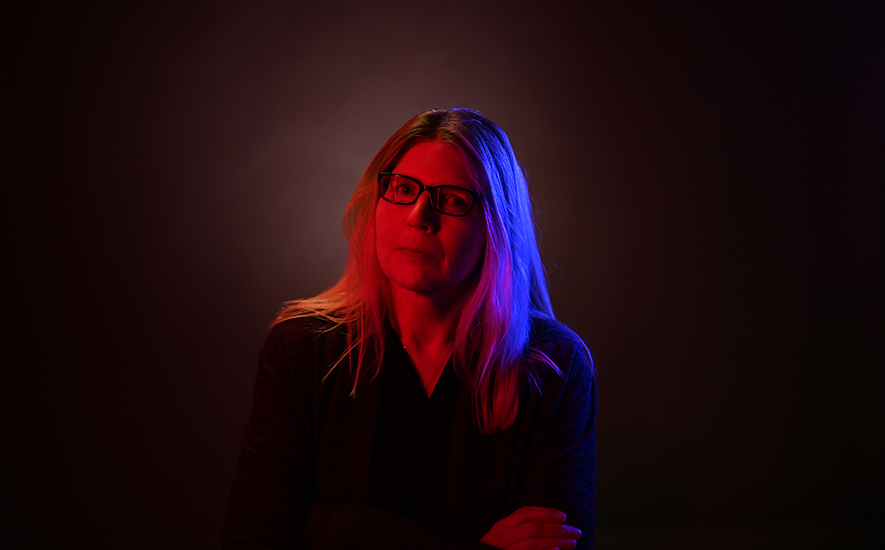
Dr. Teresa Cyrus is Department Chair and Associate Professor in the Department of Economics.
In 1890, the United States instituted the McKinley Tariff on worldwide imports, bringing the average U.S. tariff rate to 50 per cent. The U.S. refused to exempt Canada in an effort to force the country to become the 45th state. Sound familiar?
The history of free trade between Canada and the U.S. goes back to the Reciprocity Treaty between British North America and the U.S. in 1854, which covered a wide variety of goods and gave the territory that later became Canada access to a larger market. However, political pressures after the Civil War led the U.S. to terminate this treaty in 1866, and a long period of high tariffs in both countries followed. Canada responded to U.S. protectionism by putting into place the National Policy, focusing on internal trade and the diversification of the Canadian economy. After the Second World War, trade barriers began to fall worldwide, and the Canada-U.S. Free Trade Agreement took effect in 1989. This was expanded to include Mexico in NAFTA in 1994 and renegotiated by Donald Trump in his first administration as the Canada-U.S.-Mexico Agreement.
These relationships will be hard to replace. The future may find Canada stronger and more self-sufficient, but at the cost of higher prices and lower efficiency.
Trade always has benefits and costs: lower prices and greater variety for consumers on the one hand, but accompanied by disruption to the labour market as some industries contract and others expand. And now, we are seeing another danger of relying on trade: an American president imposing tariffs for nonsensical reasons, threatening Canadian sovereignty, and injecting uncertainty into established trading relationships.
American tariffs on Canada will lead to reduced exports, slower growth, and job losses, while our reciprocal tariffs on U.S. imports will raise prices in Canada. Over time, if these tariffs are maintained, the Canadian economy may adjust to produce more of our goods at home, or pivot to trading with other countries. We have 15 free trade agreements in place with 51 countries, including the 27 countries of the European Union. The McKinley Tariff didnŌĆÖt result in Canada becoming the 45th╠²U.S. state and the current trade war wonŌĆÖt result in Canada becoming the 51st.
But it is important to remember that trade reflects geography, and our close proximity to the U.S. has allowed for low trade costs and an integration of production across the continent. These relationships will be hard to replace. The future may find Canada stronger and more self-sufficient, but at the cost of higher prices and lower efficiency.
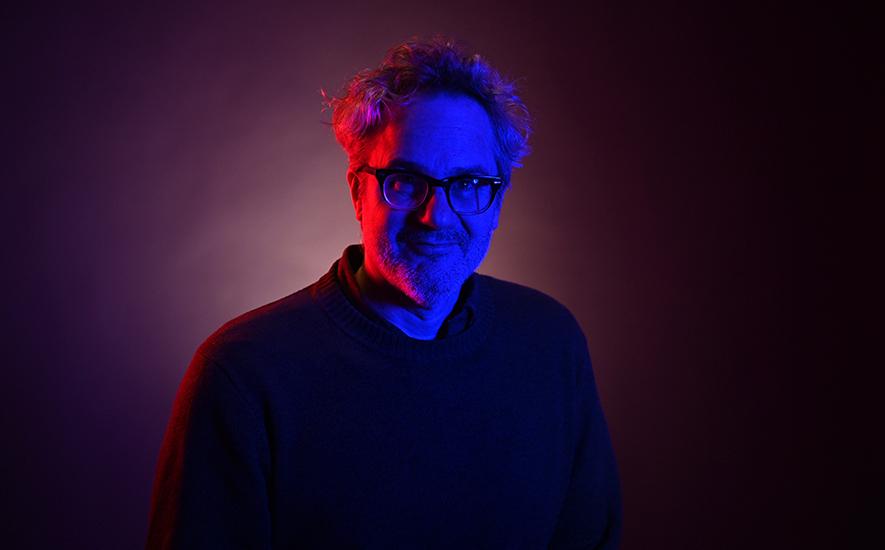
Dr. Brian Bow is Department Chair and Professor in the Department of Political Science.
The ŌĆ£Team CanadaŌĆØ strategy Justin Trudeau's government used to try to manage TrumpŌĆÖs tariffs is a variation on a strategy originally developed in the 1980s to deal with the fragmentation of power in Washington. Before that, when power was centralized in Washington and central decision-makers there saw U.S. and Canadian interests as naturally aligned, it was easy to have influence and Canada was comfortable with being more closely integrated. The fragmentation of power in the 1980s meant that we needed to find allies inside the U.S. (members of Congress, state governors, transnational companies, activist organizations) to exert influence indirectly. The Team Canada variation just adds more of an effort to get various players on the Canadian side, especially provinces, working together in building those alliances. The strategy is in some question now because thereŌĆÖs a recentralization of power in Washington, but the new central decision-makers ŌĆö i.e., Trump and his most loyal supporters ŌĆö are openly hostile to Canada. This isnŌĆÖt a momentary crisis, and the U.S. isnŌĆÖt going to suddenly sober up and ŌĆ£go back to normal.ŌĆØ
For 80 years weŌĆÖve been resolving frictions with the U.S. by trying to get them to recognize common interests and make adjustments for us. Now weŌĆÖre going to have to make our own adjustments by partially decoupling from the U.S., in both economic and national security policy. WeŌĆÖll still have to try to influence policy outcomes in the U.S. and thatŌĆÖll require some version of Team Canada, but we should expect to find it much harder to find allies in the U.S. who are willing to go to bat for Canada or even to challenge the White House. Congress is pretty much useless. Better bets are state governors and transnational companies with a stake in both economies.╠²
For 80 years weŌĆÖve been resolving frictions with the U.S. by trying to get them to recognize common interests and make adjustments for us. Now weŌĆÖre going to have to make our own adjustments by partially decoupling from the U.S.
Decoupling economically is going to require more state intervention in the Canadian economy, and that in turn will require rebuilding of the stateŌĆÖs administrative capacity. We need a new industrial policy to manage the rebuilding of our manufacturing and tech sectors, create jobs and combat income inequality, and engineer a transition to a more sustainable economy. On the national security side, weŌĆÖll need to spend more on defence, police and intelligence, and weŌĆÖll need to focus those investments less on being useful to the American empire and more on self-reliance, especially in the Arctic. WeŌĆÖll still need to try to maintain old intelligence-sharing relationships but should consider the U.S. to be an increasingly unreliable source and try to lean more on other traditional partners, like the UK and Australia.
In the coming election, we must demand that party leaders give us more than tough talk about standing up to Trump ŌĆö we need to hear detailed plans for charting a new course based on reinvesting in government, strengthening national unity and achieving greater self-reliance.
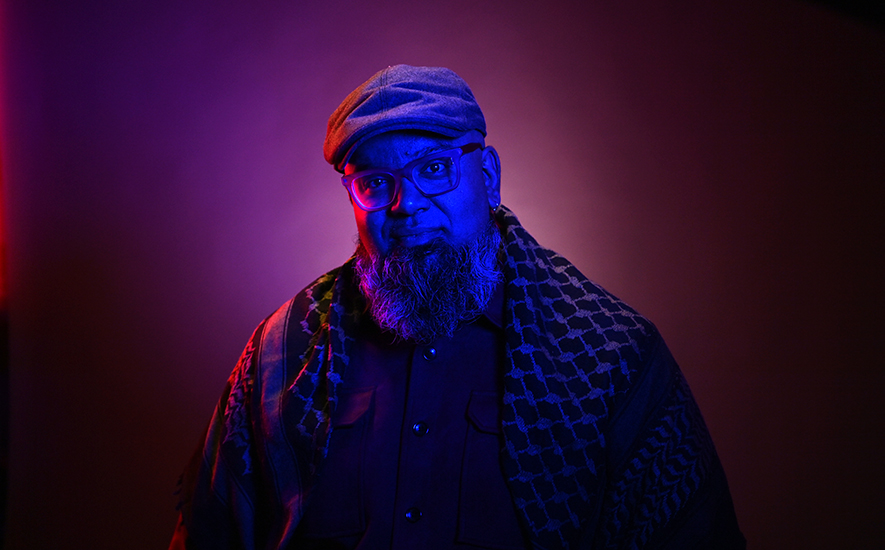
Dr. Ajay Parasram is an Associate Professor in the departments of International Development Studies and History.
It's always good to support small, local, and ethical businesses, but beyond this, the negative implications of rising Canadian nationalism and patriotism outweigh the positive. Nationalism is too potent a weapon to control ŌĆö it has a stupefying impact on peopleŌĆÖs ability to be decent to one another and this is precisely why it is the weapon of choice of Donald Trump.╠²
Trump and his threats to violate Canadian sovereignty have exposed the imperial dimension of U.S. policy. The U.S. has been the sharpened spear of Western imperial domination since the end of the Second World War, bankrolling leaders and toppling governments when it suits their interest from Africa to the Caribbean, to the Asia-Pacific and Middle East. From within the settler-colonial fortress of ŌĆ£North America,ŌĆØ Canada has benefitted from U.S. global empire building ŌĆö itŌĆÖs only in 2025 that we realize that Canada too can be victims of U.S. greed.╠²
ItŌĆÖs good to feel a little pride about your community, but when that gets scaled up the nation-state, it discourages dissent at precisely the moments where dissent is most necessary.
If that viewpoint strikes you as unpatriotic, let me reassure you that it comes from a place of love and admiration for all the things that might be possible in one of the richest and diverse places on this sweet lifeboat of a planet. But state nationalists cannot truly love, because to love, you must criticize. Ask yourself how open to criticism Donald Trump, Pierre Poilievre, or Mark Carney seem to be? Nationalism loves symbols more than substance, and this is why hockey metaphors are at the core of these much more important fights. My point is not that these three men are the same, just to draw attention to how all three seek to wield nationalism to de-politicize Americans and Canadians into thinking only their narrow agendas can save us from ourselves.╠²
ItŌĆÖs good to feel a little pride about your community, but when that gets scaled up the nation-state, it discourages dissent at precisely the moments where dissent is most necessary. So keep your elbows up, but use them to defend Indigenous sovereignty, environmental sustainability, and to guard against the double-speak of our would-be rulers.
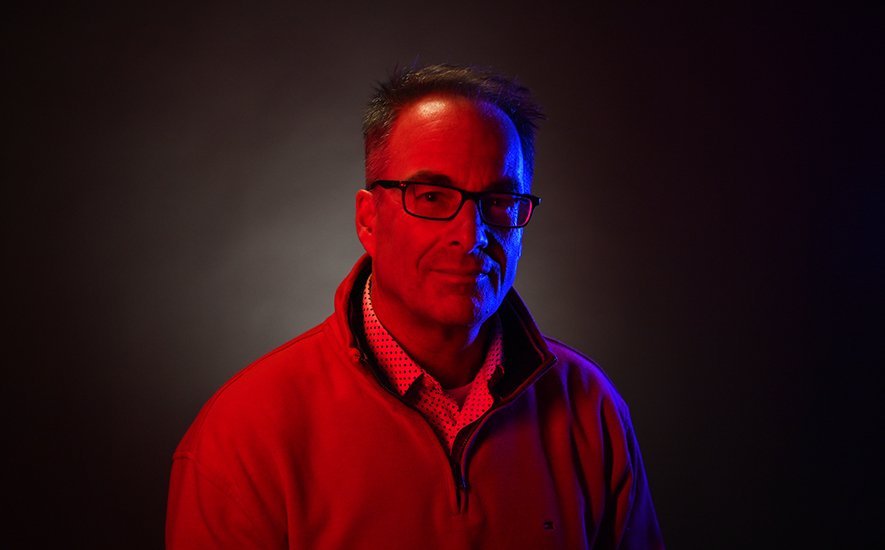
Dr. Lorn Sheehan is a Professor in the Faculty of Management and the School for Resource and Environmental Studies.
Canadians can and are reacting both logically and emotionally to the ever-changing aggressive and unjustified trade actions by the U.S. administration. We are pushing back against the U.S. by not buying their products, adding to the self-inflicted pain from tariffs that Americans are feeling while at the same time strengthening and diversifying our own economy.
Tourism offers the perfect platform to accomplish this. Canadians are the top source of international visitors to the U.S. and choosing not to travel to U.S. will hurt their economy. A 10 per cent reduction in the number of Canadians travelling to the U.S. is forecast to cost Americans approximately 14,000 jobs and $2 billion in lost income. This is already happening, with Canadians reportedly taking 13 per cent fewer trips to the U.S. this March compared to last March. Looking forward in 2025, almost half of Canadians surveyed in a recent poll by Leger said theyŌĆÖre less likely to go to the U.S. this year compared to last.
Individual Canadians are making their views known and using their collective power as the largest consumers of American products. In my view, it is only the collective pain felt by American industry and consumers that will elicit any response from the Trump administration.
Now is the time to showcase CanadaŌĆÖs incredibly diverse range of vacation experiences and encourage Canadians to explore, enjoy, and support our country.
The second part of this reimagining is to strengthen and diversify our own economy. Canadians spending their vacations in Canada will further this goal. Canadian tourism destination management organizations at all levels (municipal, regional and federal) can facilitate this by investing in their domestic tourism promotion campaigns. Now is the time to showcase CanadaŌĆÖs incredibly diverse range of vacation experiences and encourage Canadians to explore, enjoy, and support our country.
Further fuelling the trend for Canadians to avoid the U.S. and stay in Canada is the weak Canadian dollar, which makes all U.S. products ŌĆö including vacations ŌĆö more expensive for Canadians. At the same time, this makes Canada vacations very affordable for the American people ŌĆö our friends and neighbors. Our tourism industry can take advantage of this opportunity by preparing to welcome a record number of visitors ŌĆö a potential bright spot in both our domestic and export economy.
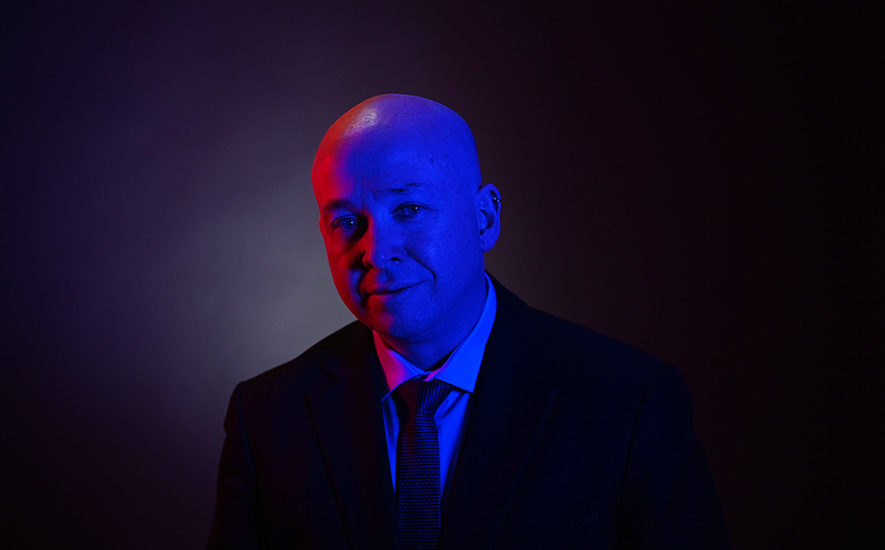
Dr. Robert Huish is Associate Professor in the Department of International Development Studies.
January 20, 2025, is the day that Development died. With a single Sharpie stroke, Donald Trump froze all funds to the United States Agency for International Development (USAID). In a move to ŌĆ£clean up government spending,ŌĆØ the Trump administration unleashed a tidal wave of suffering on the poorest and most vulnerable people on the planet. In 2023, USAID disbursed more than US$43 billion to 160 countries and regions worldwide. USAIDŌĆÖs impact is profound and unmatched by any other donor. Even for the most frugal fiscal advocates, firm development aid commitments meet humanitarian goals by quelling suffering and pestilence that can trigger conflict and instability. It allows for furthering geostrategic interests through soft power diplomacy while ensuring that U.S.-made goods, medicines, and agricultural products are purchased and committed to overseas recipients ŌĆö hence serving as a bolster to the U.S. economy on several fronts.
Donald Trump's profound geographic illiteracy flies in the face of this. During the 2025 State of the Union address, Trump openly mocked the enclave of Lesotho by telling the audience, ŌĆ£Nobody has ever heard of [it].ŌĆØ The 2.3 million Basotho (people of Lesotho) have certainly heard of it. The country receives nearly US$50 million annually, focusing primarily on global health work, including much-needed HIV care. In Ethiopia, a country Mr. Trump may or may not have heard of, over $1.3 billion in aid came to the country in 2024 for much-needed emergency food, medical and humanitarian assistance. Now, the supply is cut. Medicine is sparse, and hunger-related calamities ensue.╠²╠²
Make no mistake; this is not a budget cutback or a funding pause. This is a declaration of war on the global poor. Aid has also come with strings, commitments, and challenges, but its eradication leads to catastrophe. Development scholars have long criticized the development industry for creating dependencies, furthering inequalities, and misaligning benevolent projects with political agendas, among other matters. Others argue that development funding is inefficient and requires smarter spending with more local control. However, TrumpŌĆÖs catastrophic reworking of development aid will increase suffering, reverse many gains in global development, and ultimately hurt the U.S. economy. It will be a telling lesson on how the method matters as much as the ends.╠²
If we are to survive the next four years, Canada and the world need a strong demonstration of the values of compassion and solidarity towards humankindŌĆövalues that are desperately lacking in the U.S. government today.
Canada is a minor global development aid player at about $8 billion annually. Do we have the current capacity to fill in the chasm of USAIDŌĆÖs destruction? No. Is this an opportunity to expand opportunities? It most certainly is. It will require deep investments into procuring food, medicine, and technologies for this kind of work while organizing it to benefit the Canadian economy rather than burden it. It will also require more innovations in soft power strategies toward allies and adversaries alike. Often, countries send out in aid what they do well at home. Canada does well at making health care and education accessible, far beyond that of the U.S. So, at a time when the U.S. is destroying families by deporting people in need of medical care, including cancer care, can Canada not demonstrate a better way forward in scaling up the compassion that we expect of own compatriots?
In the news
More expert opinion from Dr. Robert Huish:
- A look at the response to and the realities of the U.S. tariff threats ŌĆö CBC
- ╠²╠²ŌĆö CBC
The first four months of TrumpŌĆÖs second term have been nauseating. If we are to survive the next four years, Canada and the world need a strong demonstration of the values of compassion and solidarity towards humankindŌĆövalues that are desperately lacking in the U.S. government today.
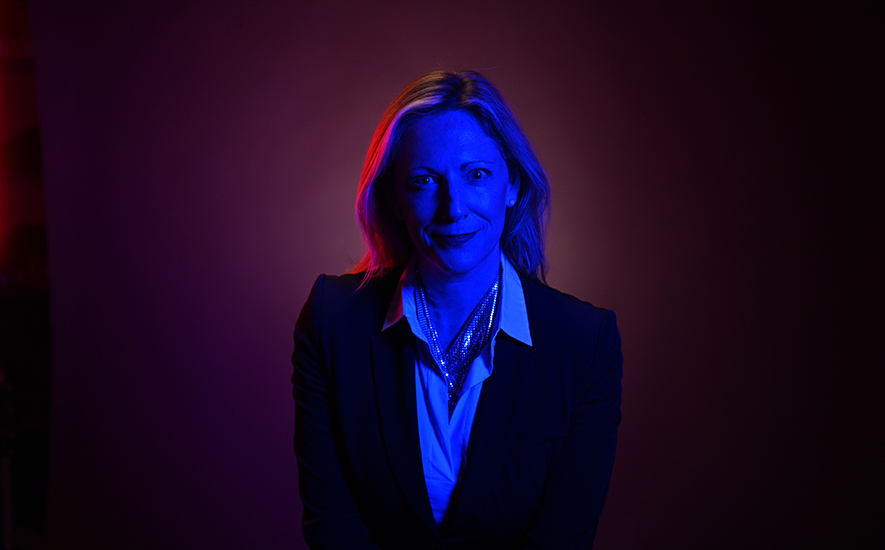
is Assistant Professor in the in the .
Canada cannot be a scientific subsidiary to the United States, so how do we bolster, build and protect our scientific superpower?╠²╠²
We need to retain what we have. We have excellent existing health-science assets in the public and private domains. But to keep them and change the rate of discovery from inching to leaping, there will have to be robust, risk-based funding that is meaningful and free of political interference.╠²╠²
We must recruit scientists, innovators and science entrepreneurs rapidly to strengthen our current national assets. We will need more direct science investment in public and private research infrastructure to do the work.
We should reflect on our Canadian innovation successes in high-risk research. Like the Banting, Best and MacLeod-led research team that discovered insulin. We know the benefits of discovery science, and how Canadian innovation can change health outcomes. We need to support bigger risks for bigger returns in health research.╠²╠²
We have a phenomenal opportunity to transform the Canadian health-science landscape to make it the most welcoming place on earth for inquiry, knowledge generation and health-product production.
We ought to remove barriers to science translation so knowledge spreads more easily than measles and misinformation. Remove bureaucratic research barriers that limit the scope of ŌĆśleap forwardŌĆÖ efforts.╠²
We need to reverse attempts to interfere with academic science agendas. All Canadian provinces and territories can offer U.S. citizens and scientists working in the Canadian academic domain, for the moment. Awareness of threats to academic free will and enhanced mechanisms to promote risk-taking health science efforts is essential within our own borders.╠²╠²
In the news
More expert opinion from
- ŌĆö CBC
- ŌĆö The Globe and Mail
Democracy thrives where science, innovation and research are protected, promoted and expansive. We have a phenomenal ŌĆö possibly once in a lifetime ŌĆö opportunity to transform the Canadian health-science landscape to make it the most welcoming place on earth for inquiry, knowledge generation and health-product production.╠²╠²
To do that, we need to rapidly refocus our own ecosystem publicly and privately. We must protect and build a risk-taking health science ecosystem that is extremely well-funded and free of political interference. Be bold. Be decisive. And do it now.
Contact Us
╠²
- To contact any of the experts above, please get in touch with our Communications team.
Are you a Dal expert?
Dal News regularly taps into the expertise of DalŌĆÖs researchers and scholars to help understand the world around us.
If you have expertise to share,╠²drop us a line.╠²
